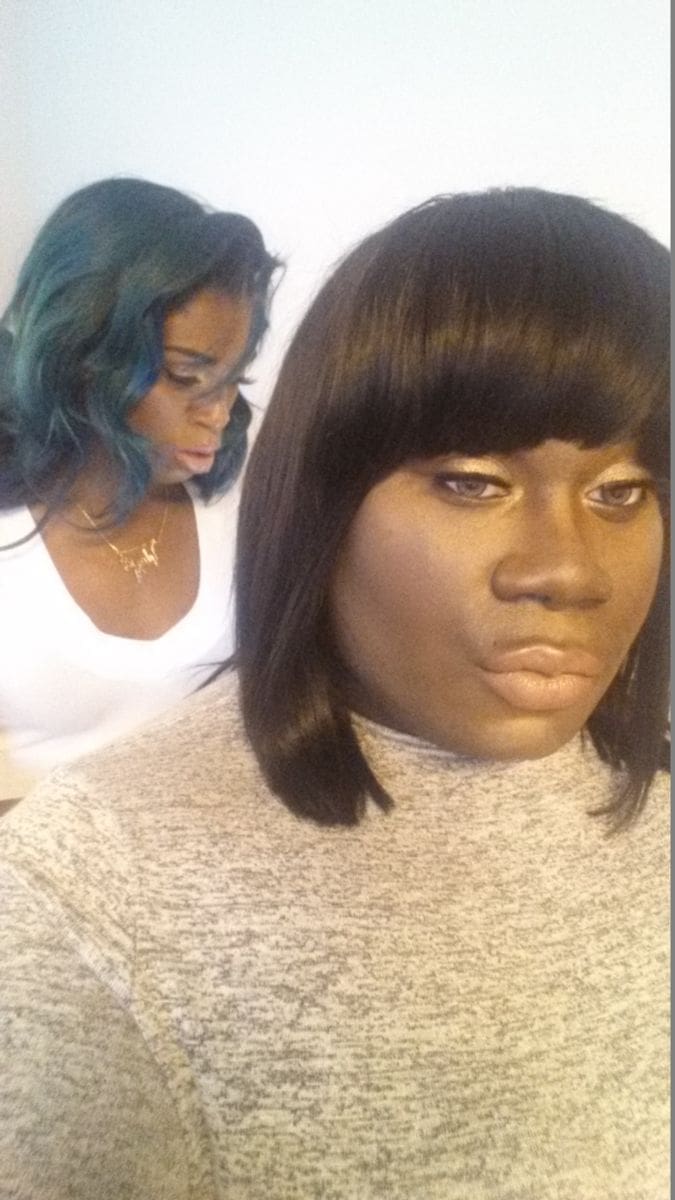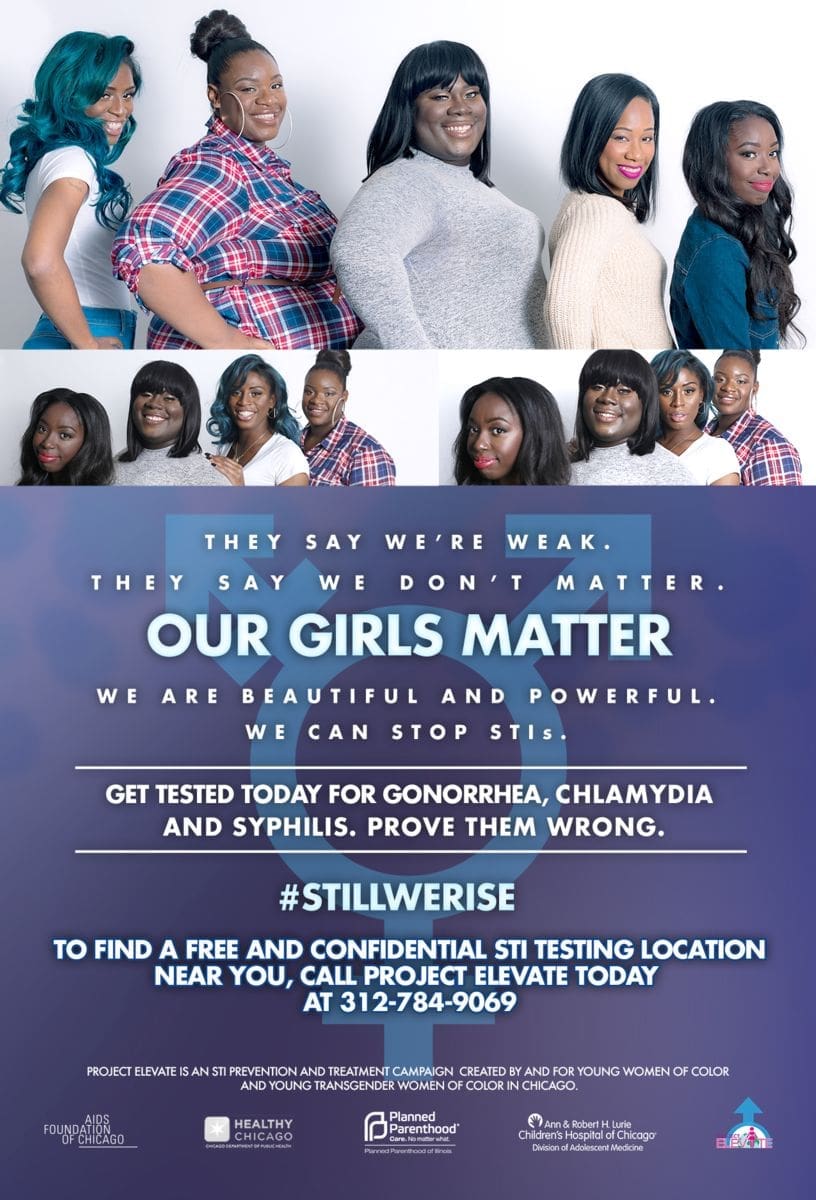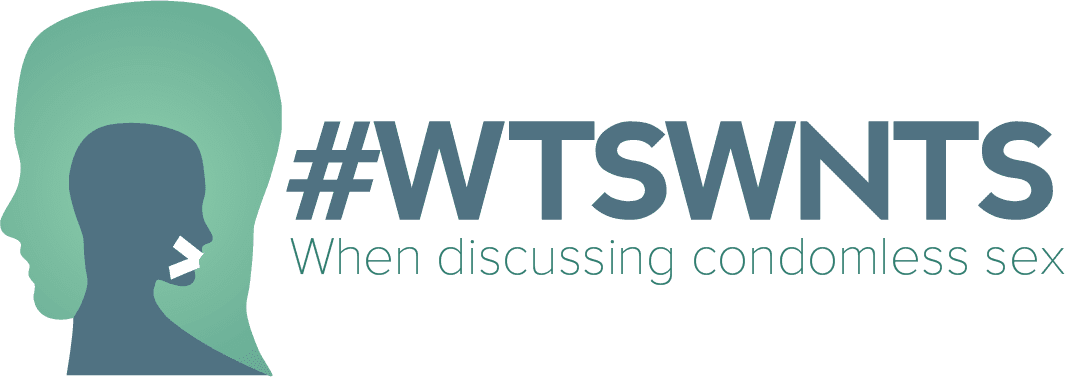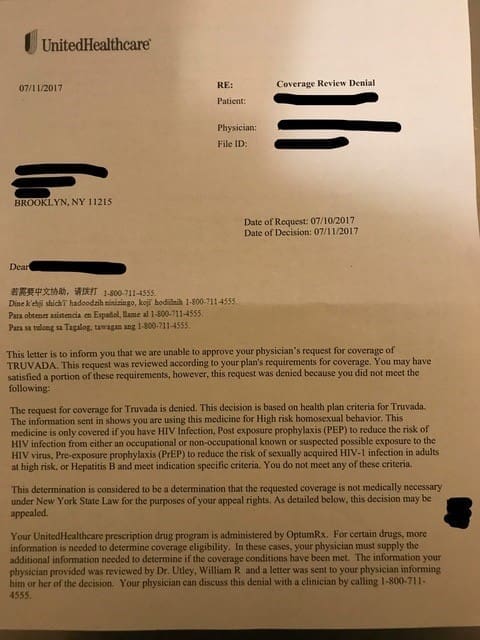by Eryn MacNeil
If you’re a young woman who has experienced hiring discrimination and a lack of resources, it would be easy to give up. Instead, Meghan Williams has turned her past experiences into a way to help others.
As a 21-year-old transgender woman, she works with AFC’s Project Elevate, a peer-led STI prevention campaign, on its Youth Expert Advisory Board, which leads the direction for the messaging and outreach behind the campaign.
Her passion for working with young cisgender (people whose sexes at birth match their gender) and trans women of color is based in personal experience. “I want to be the same kind of mentor to young, questioning kids that I was lucky to have,” Williams said. She hopes to someday turn her volunteering and passion for mentoring into a full-time career.
Williams came out as gay at the early age of 12. Her mother, who was originally wary, eventually came to be one of her biggest supporters. “She said, ‘I’m glad you told me, because a lot of people suffer with coming out. They resort to drugs and drinking, and don’t feel supported.’ So, I’m glad I told her,” Williams reflected. “Ever since that day, I didn’t care who knew.” Now, she lives on her own but says they’re extremely close. She’s moving closer to her mother next month.
When she was 18, Williams came out again — this time as a transgender woman. “I finally looked at myself in the mirror and decided this was something I needed to do. I’m not the type to say I was born in the wrong body, but I know I wasn’t comfortable in the body I was in. I didn’t look at myself as being pretty or beautiful, and I feel much more complete now.”
Now that she’s older, Williams enjoys helping others who are currently questioning their identity or looking for a place where they belong. “I have gay friends, and sometimes I help them with their problems. Hey, I’ve been there, and so I mentor them. I’m 21 but I already have a lot of experience, even though I’m pretty young myself.”
Despite being comfortable with who she is, Williams still faces discrimination because of her gender, especially when trying to find a job. “It’s not too easy for transgender women right now. It’s pretty hard. Nine times out of ten, the saying goes, the only way you can get a job while being trans is if the employer doesn’t know you’re trans or you’re working in a specifically trans environment,” she says. This can be limiting to trans people who can only find jobs in certain fields, or in low-level positions. Although she has attended career trainings where she learned interview and professional skills, she has had five unsuccessful job interviews in the past year. “I go in and I do my best, and I’ve been trained to do well in interviews, but I just don’t get the job, especially after in-person interviews. I work hard, I research, I prepare for every interview, but it doesn’t work out.” Williams intends to keep at it and find a job soon so she can prepare for further education, but she theorizes that this discrimination discourages trans people from even applying for jobs and is a cause of low rates of employment among transgender women in particular. “I know a lot of my trans brothers and sisters feel the same way. It’s very discouraging, and a lot of trans unemployment stems from this prejudice and then discouragement,” she says.
Ultimately, Williams aspires to be a high school guidance counselor, driven by the positive mentors that she had in her own high school experience. Of the several high schools she attended, her first high school had a teacher she still considers a great mentor. “She was really a mentor to the LGBT students. She saw us almost as her children. She made sure no one called us names or messed with us. She didn’t coddle us — she pushed us harder because she wanted us to be successful.”
In the meantime, Williams keeps busy working with Project Elevate. She came up with a quote for a recent campaign, and was even featured on the poster. “I love Project Elevate because our voices mean something, and I love being part of a group like that, where my opinion can actually change things. It makes me feel like I’m doing something.” She noted that, especially for transgender and even cisgender women of color, this experience can be very powerful because, as a group, they tend to be dismissed and looked down on. “The facilitators from AFC and others really make sure that our voices are heard and our ideas are valued.” Educating young women on HIV and STI prevention is something that she hopes to always be involved in, and to continue throughout her career.
When she’s not working with Project Elevate, she likes to spend time with friends. Meghan is the kind of person who is almost constantly surrounded by people. For her interview, she arrived with several friends in tow and asked for someone to talk to them about PrEP. They waited for her in the lobby while we talked. She also often strikes up conversations with people on the subway or in her neighborhood in Woodlawn. “I’ve met some of my best friends that way,” she laughs.

The Youth Expert Advisory Board also lent their input to the development of a new smartphone app, a collaboration with the Chicago Department of Public Health, Greater Good Studio and other partners. The app was designed to appeal to young people, aged 14-24 or even younger, who are looking for sexual health resources. The app is especially relevant for LGBT youth who might be afraid to ask their parents or other adults for help, and for whom there just aren’t as many resources available online. Williams hopes that more resources like this will be available to young people soon. “I certainly could have used more sexual health resources when I was younger, and sometimes still could. Especially for people living in small towns or unsupportive environments, who might not meet another LGBT person until they move out on their own, we need a way to get information to them.” The app has no release date yet, but information will be available online soon.
Until then, Williams advises questioning youth to reach out to any supportive adults they might have, and try to get plugged in to a community. “If you’re in high school and you’re coming out or questioning, be safe and know what you’re doing. Go to your school counselor.”
The Youth Expert Advisory Board is currently looking for cis and trans women of color, ages 14-24. Williams thinks it’s a great place for young women of color to make their voices heard and get linked up with peers who support each other. “It’s hard to feel like you’re the only one going through your situation, especially if you don’t have a support system,” says Williams. “The resources are available, but you might have to look a little bit harder. No one should have to feel like they’re alone in their struggle.”



